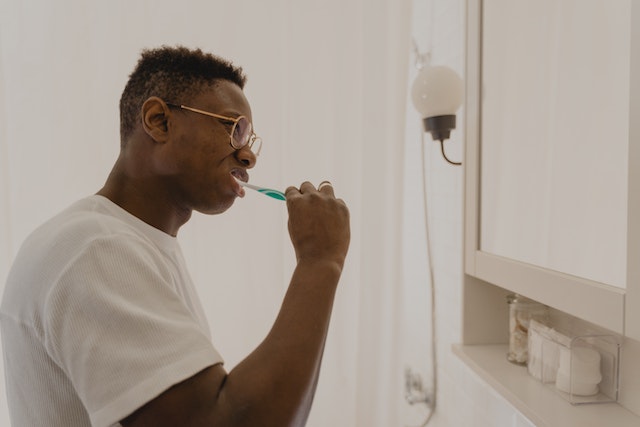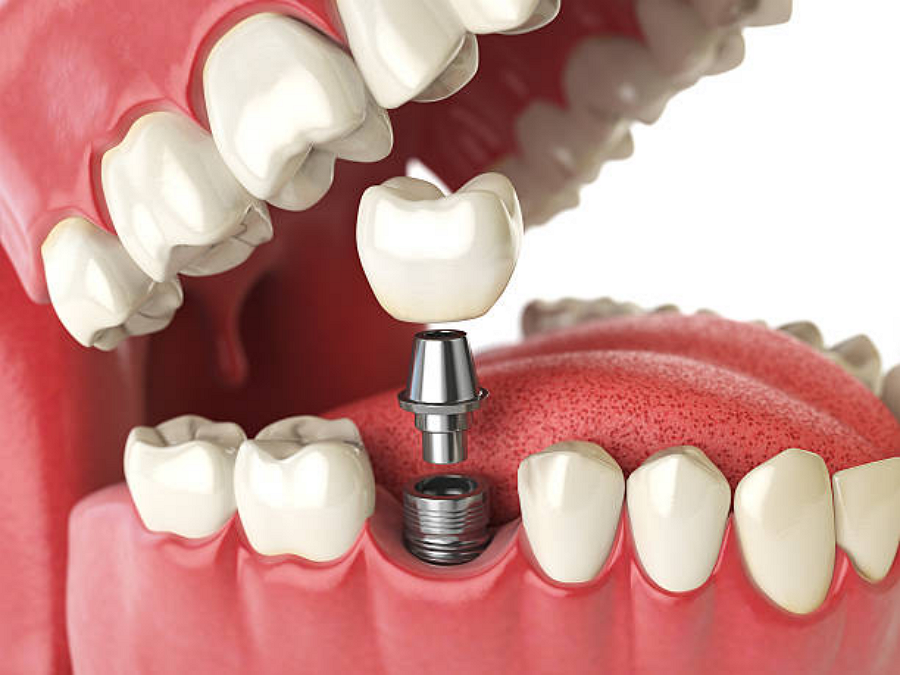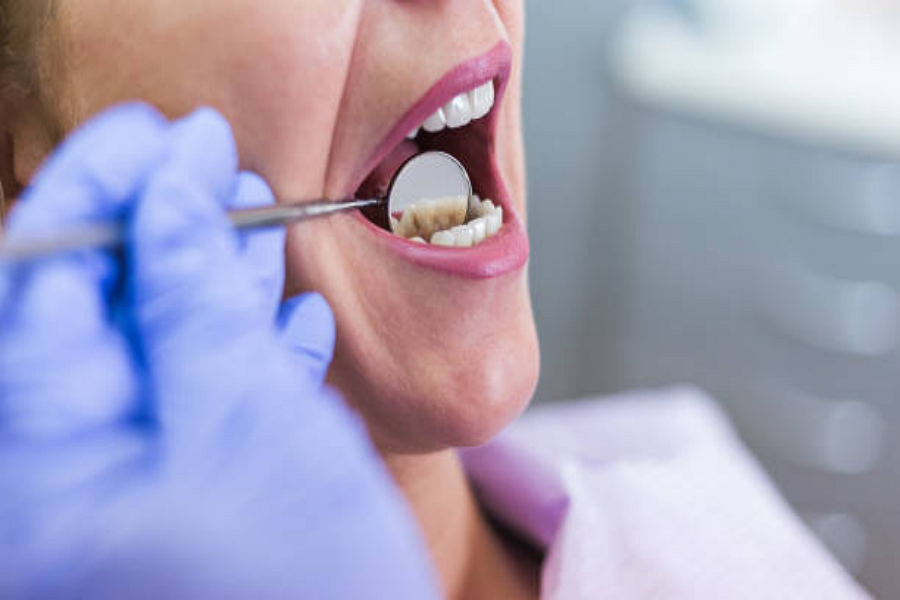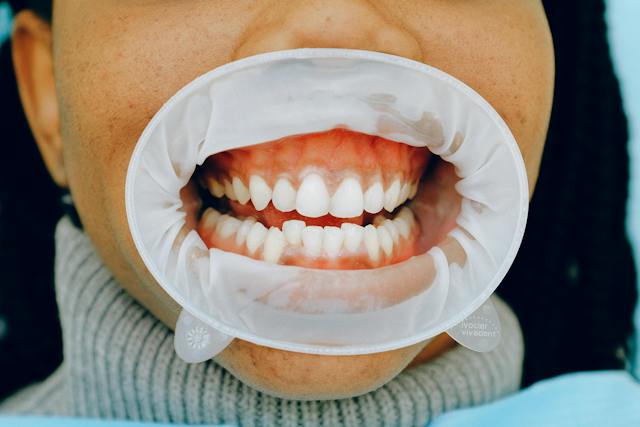When you see shades of pink and red on your toothbrush it can be alarming. You’ve also noticed your gums are bleeding when flossing. While you don’t have to hit the panic button, bleeding gums can be a sign of gum disease.
Gums tend to bleed because they’re inflamed from bacteria build-up. However, there can be other reasons for bleeding gums besides gum disease. A trip to the dentist can determine why you have bleeding gums and what treatments you need.
As our dentist, Dr. Nicole Manigault, explains, practicing good oral hygiene habits can help prevent bleeding gums and gum disease. But if you haven’t been putting your toothbrush and floss picks to good use, professional treatments may be necessary. In-office gum disease treatments can remove the sources of bacteria and stop the condition from getting worse.
What Do Bleeding Gums After a Dental Cleaning Mean?
You may not notice you have bleeding gums until you visit your dentist for an exam. As the dentist is cleaning your teeth or checking your gums, they make a comment. You might hear something like “lots of bleeding” or “your gums near your back teeth are bleeding when probed.”
Bleeding gums after a dental cleaning can mean you’re in the early stages of gum disease, known as gingivitis. But lifestyle factors and conditions like teeth grinding may also be the root cause. Regardless, bleeding gums after a dental cleaning usually indicate something’s wrong.
Symptoms of Gum Disease
Gum disease is the top reason for bleeding gums. You could be in the early, mid, or late stages. Gingivitis is the first stage of gum disease and is usually mild enough to reverse. The hallmark symptoms of gum disease are inflamed and bleeding gums.
With gingivitis, you might also notice your gums are swollen and sore. The reason is usually because there’s too much plaque buildup on your teeth or near the gum line. Regular teeth cleanings and dental exams from your Elkin, NC dentist can fix this. Your dental office may also recommend a deep cleaning treatment, depending on the amount of plaque on your teeth.
If gingivitis progresses, it turns into periodontal disease. Once you’re in the mid to late stages of gum disease, you’re at risk of tooth and bone loss. You’ll notice more than bleeding gums after a dental cleaning. You may have infected gums, loose teeth, receding gums, bad breath, and bite changes.
Teeth Grinding
Teeth grinding is another cause of bleeding gums. You may hear your dentist refer to teeth grinding as bruxism. Those who grind their teeth usually do it in their sleep and aren’t aware they have the condition.
Our Elkin, NC dental office can spot signs of teeth grinding during a dental exam. Besides bleeding gums, your teeth’s enamel may show signs of wear and tear. Your teeth may get more sensitive, portions of a tooth may chip or break, and you might wake up with headaches.
Grinding can also create spaces between your teeth, making gums more susceptible to bacteria. You can’t always reverse or stop bruxism. However, a dental office can fit you for a night guard to protect against further damage.
Chronic Stress or Illness
If you’ve been under a lot of stress lately, your gums can bleed. Chronic stress can cause systemic inflammation in your body, which can affect your gums. Other chronic conditions like diabetes and leukemia can also cause bleeding gums.
Even hormone fluctuations, vitamin deficiencies, and blood thinners may cause your gums to bleed. You can’t always control factors related to chronic conditions. However, it’s important to discuss any relevant medical history with your dentist for bleeding gums. This way, they’ll be aware of why your gums may be more susceptible to bleeding after a cleaning.
How Can I Stop Bleeding Gums After a Dental Cleaning?
Wondering when you should be concerned about bleeding gums and what to do about it? Once you notice your gums are bleeding, it’s a clue it’s time to take action. While there’s a one-off chance you brushed your teeth too aggressively, you usually need to step up your oral hygiene.
1. Make Changes to Your Oral Hygiene Routine
As a general rule, you should be brushing your teeth at least twice a day. You should also be flossing at least once a day. It’s ideal if you can brush your teeth after each meal or after consuming beverages other than water.
Gingivitis tends to develop when you neglect the basics. But if you notice bleeding gums despite regular brushing and flossing, you may need to add a mouthwash to your routine. An antiseptic mouthwash can help get rid of bacteria that’s hard to reach.
For instance, you might still have your wisdom teeth and can’t reach back that far with floss. Using an antiseptic mouthwash once or twice a day after brushing can help keep plaque at bay. You might also not be brushing and flossing properly. At your next dental appointment, ask your dentist to demonstrate proper techniques.
2. Make Lifestyle Changes
If you suspect stress is why your gums are bleeding, you’ll want to reduce your stress levels. You might need to reduce your responsibilities, find more time to relax, or evaluate whether bigger changes are in order. Sometimes certain jobs can be too much to handle, and finding something less strenuous will help.
Being concerned about bleeding gums can be a sign you also need to talk to your doctor. If you’re on medication to manage a chronic condition, find out if bleeding gums is a side effect. Your doctor might be able to suggest a different prescription along with lifestyle behaviors like regular physical exercise.
Exercise is known to help reduce stress and aid in the management of illnesses like diabetes. Habits such as smoking are additional factors. Giving up tobacco gives your body the ability to heal faster and prevent oral cancers.
3. See Your Dentist for Gum Disease Treatment
Say you’ve tried stepping up your oral hygiene at home. Plus, you’ve stopped smoking, started meditating, and started a less taxing job. Despite all these changes, you’re still seeing pink spots on your toothbrush and your gums look swollen.
If this sounds familiar, it’s time to schedule an appointment with one of our dentists in Elkin. They can tell you why your gums are bleeding and recommend appropriate treatments. If they determine you have gum disease, they might suggest you get a deep dental cleaning. Or, they might recommend laser procedures for periodontal disease.
It’s possible you need a round of antibiotics and more frequent dental check-ups. Be sure to visit your dentist every six months for routine check-ups and cleanings. These visits help remove the plaque and tartar that can inflame your gums.
What Will Your Dentist in Elkin, NC Do for Bleeding Gums?
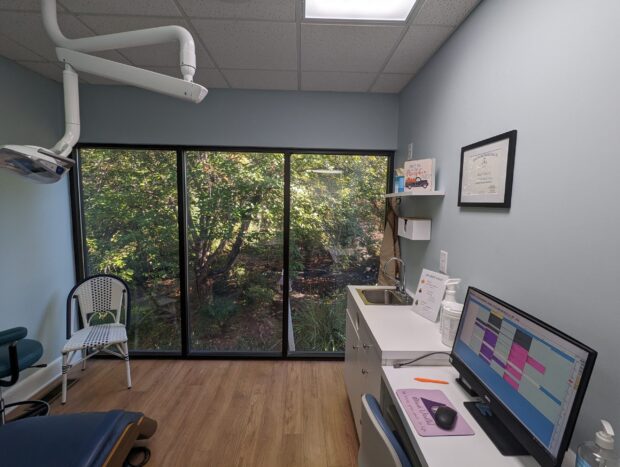
Gum disease symptoms like bleeding gums shouldn’t be ignored. They won’t go away without the right diagnosis and treatments. If you notice your gums bleed when flossing or brushing, don’t wait until your next dental cleaning.
Our Elkin, NC based dentists can schedule you for an exam to determine if you should be concerned about your bleeding gums. Only a dental office can diagnose gum disease or periodontal disease. Depending on the disease’s stage, your dentist can deep clean your teeth, recommend stronger oral hygiene products, or schedule you for surgery.
Need to see a dentist for bleeding gums or periodontal disease in Elkin, NC? Don’t hesitate to contact us for more information. You can also schedule an exam for bleeding gums with a trusted member of our team today.
